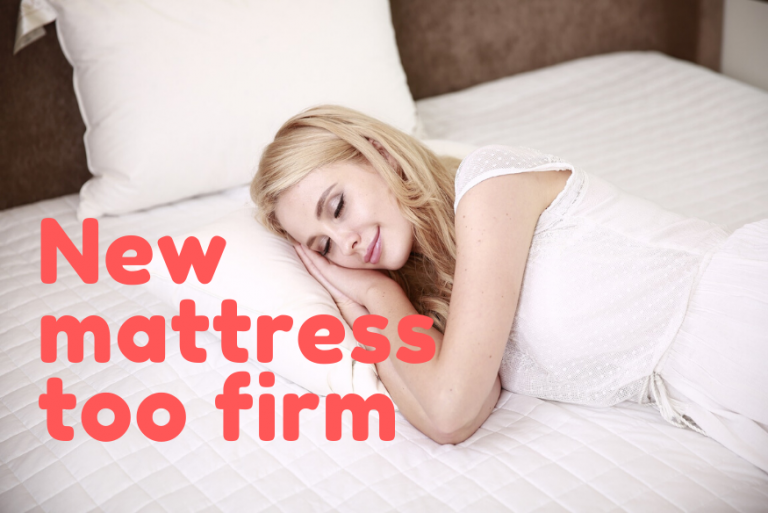When was the last time you snuggled into bed, only to find yourself bouncing off the mattress like it was made of concrete? The feeling of a mattress being too firm can be one of the most disheartening experiences. Sleep is paramount for our overall well-being, yet many people soldier through sleepless nights because of an unyielding sleeping surface. So, can a mattress really be too firm for you? Let’s explore this conundrum together, shall we?
First and foremost, let’s establish what is meant by “firmness.” Mattress firmness is a subjective measurement that varies greatly from person to person. While some individuals may cherish the support of a rigid mattress that keeps their spines aligned, others may find it akin to sleeping on a wooden plank. The ideal firmness level depends on several factors, including body weight, sleeping position, and personal preference.
Researching how different types of mattresses feel can illuminate your path to discovering the right firmness for your comfort. Memory foam, hybrid, and innerspring mattresses all come with varying degrees of firmness. For instance, while a memory foam mattress might contour to your body, providing a sense of cradling, a traditional innerspring mattress offers more bounce and support, making it feel firmer. Have you ever wondered what happens while you’re choosing between these mattresses? Perhaps it’s time to consider how they might influence your slumber.
Let’s delve into the science of sleep. Sleep is crucial in repairing muscles, consolidating memories, and even regulating mood. When a mattress is too firm, it can lead to discomfort and even pain, especially for side sleepers who require cushion to alleviate pressure on their shoulders and hips. A too-firm mattress can be insidious; while you may initially feel well-supported, you might wake up with aching joints or muscle tension. What a letdown that can be!
Now, let’s explore sleep positions, as they play a vital role in determining how a mattress feels to you. Side sleepers often benefit from a softer mattress since it allows for better contouring, which reduces pressure points. Conversely, back and stomach sleepers might prefer a firmer feel that keeps the spine in a neutral position. Have you assessed your sleeping position lately? Understanding this could be the key to unlocking improved sleep quality.
Besides body weight and sleep position, consider your unique anatomy. Some might possess a more curvaceous body type, while others have a more slender frame—all these factors contribute to how a mattress feels. A person weighing over 250 pounds may sink into a mattress differently than someone weighing 150 pounds, leading to starkly different experiences of firmness. Isn’t it remarkable how unique we all are?
What about the age of your mattress? Over time, a mattress can lose its supportive qualities, leading to a decline in comfort. A firm mattress ten years old could become a torturous sleeping surface, making firmness a moving target. Consider asking yourself: when was the last time you replaced your mattress? It may be detrimental to overlook this vital aspect of sleep hygiene.
Now, should you find yourself lying atop a mattress that is just too firm, fear not. There are strategies and modifications that could help you reclaim your comfort. One approach is to layer a mattress topper on your existing mattress. Memory foam toppers are particularly effective at introducing sag and plushness, allowing your body to sink in and relax. Are you ready to discover the transformative power of a simple topper?
Additionally, consider the bedding materials you choose. Soft, breathable sheets can enhance comfort and create a cozy environment conducive to sleep. A subtle shift in your bedding may just elevate your sleeping experience dramatically. Think of it as crafting your very own sleep sanctuary!
Let’s not overlook the importance of sleep environment. It’s more than just the mattress; altitude, noise levels, and room temperature all influence sleep quality. Experiment with your bedroom setup, ensuring you have a serene ambiance conducive to rest. Ever thought how the perfect pillow could complete your dream ensemble? It’s worth considering!
Ultimately, if you’re wrestling with your mattress, listen closely to your body’s signals. If discomfort persists despite modifications, it might be time to embark on the quest for a new mattress. With countless options available, you’re bound to find one that aligns with your personal comfort needs. Remember, it’s not just furniture; it’s a cornerstone of your health.
In conclusion, yes, a mattress can indeed be too firm. As we’ve explored, it’s a deeply personal issue tied to numerous factors, ranging from body type to sleep position. Don’t overlook the nuances of your sleeping experience; it may offer insights that lead you to restorative sleep. So, what will you choose—the hard surface or the comfy embrace? The answer lies in the comfort and tranquility you seek during your slumber.
